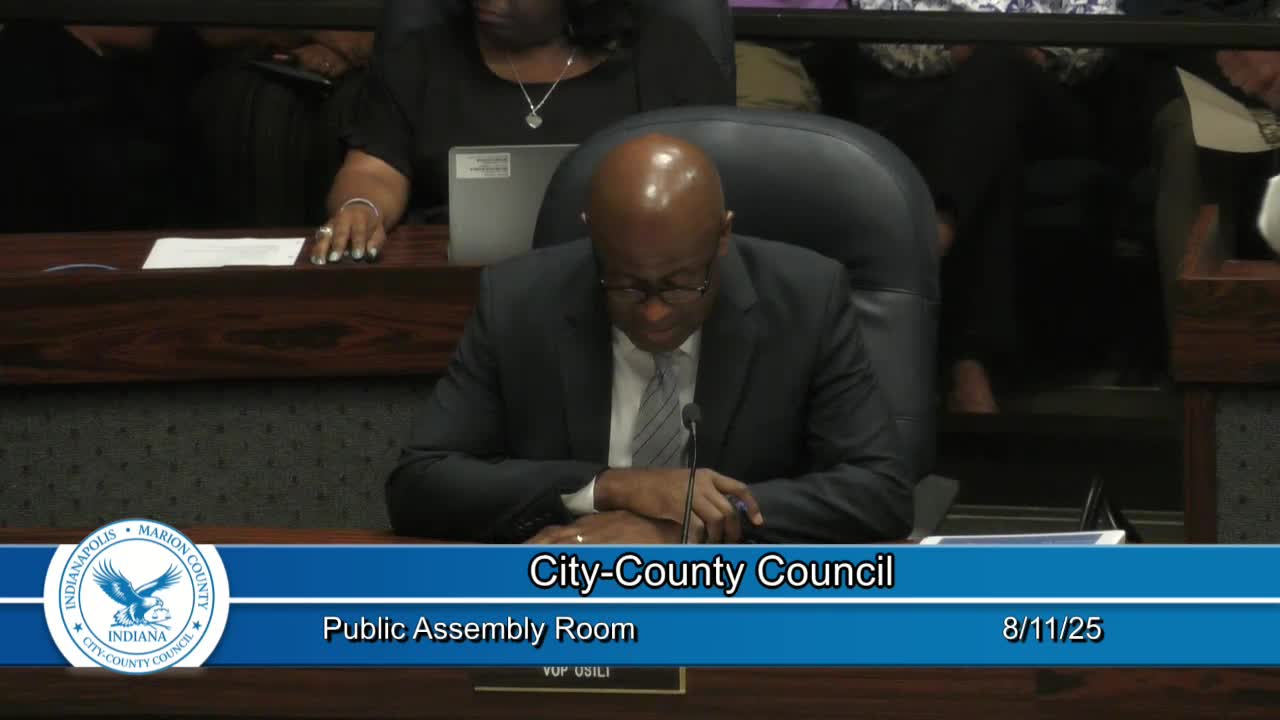Mayor Hogshead Presents Indianapolis Proposed 2026 Budget Amid State Revenue Challenges
August 11, 2025 | Indianapolis City, Marion County, Indiana
Thanks to Scribe from Workplace AI , all articles about Indiana are free for you to enjoy throughout 2025!

This article was created by AI using a video recording of the meeting. It summarizes the key points discussed, but for full details and context, please refer to the video of the full meeting. Link to Full Meeting
Mayor Hogsett began by expressing gratitude for the collaborative efforts that shaped this year's budget, emphasizing a commitment to fiscal discipline that has resulted in eight consecutive balanced budgets without raising taxes. However, the recent passage of Senate Bill 1, aimed at providing property tax relief, has created a significant $43.3 million deficit that necessitated tough decisions moving forward.
Despite these challenges, the proposed budget aims to maintain operational efficiency while safeguarding essential services. Public safety remains a top priority, with funding allocated to support first responders and fulfill union contract commitments. The mayor proudly noted that over 900 police officers have been hired, including 100 in the past 18 months, highlighting the city's ongoing efforts to combat violent crime, which has seen a notable decline.
Infrastructure improvements are also at the forefront of the budget, with a commitment to invest over $1 billion over the next five years. This includes $217 million specifically for transportation funding, bolstered by a new legislative measure that will provide an additional $100 million annually starting in 2027. The mayor underscored the importance of these investments, stating that they are crucial for ensuring Indianapolis receives its fair share of state road funding.
Housing initiatives are another focal point, with $10 million earmarked to support programs aimed at addressing homelessness and affordable housing. The budget includes funding for the Tenant Advocacy Project, which provides legal assistance to residents facing eviction, and the Homeowner Repair Program, aimed at maintaining existing homes.
In addition to public safety and infrastructure, the budget allocates resources for parks, arts, and education, recognizing their vital role in enhancing the quality of life for residents. The Circle City Readers Literacy Program, which has shown promising results in improving literacy among young students, will continue to receive support.
As the meeting progressed, City Controller Abigail Hanson provided an overview of the financial state, highlighting the city's strong credit ratings and clean audit history. She noted the challenges posed by recent legislative changes, including the impact of Senate Bill 1 on revenue projections, which are expected to decrease by $10.5 million in 2026.
The council's discussions reflected a shared commitment to navigating these financial hurdles while striving to elevate the city. Mayor Hogsett concluded his presentation by urging council members to consider the budget thoughtfully over the coming months, emphasizing the collective responsibility to address the needs of Indianapolis residents.
As the meeting adjourned, the sense of urgency and determination lingered in the air, a testament to the council's dedication to shaping a brighter future for the city. The proposed budget stands as a crucial step in that journey, balancing the need for fiscal responsibility with the imperative to invest in the community's well-being.
Converted from City Council of Indianapolis, IN - City-County Council meeting on August 11, 2025
Link to Full Meeting
Comments
View full meeting
This article is based on a recent meeting—watch the full video and explore the complete transcript for deeper insights into the discussion.
View full meeting
